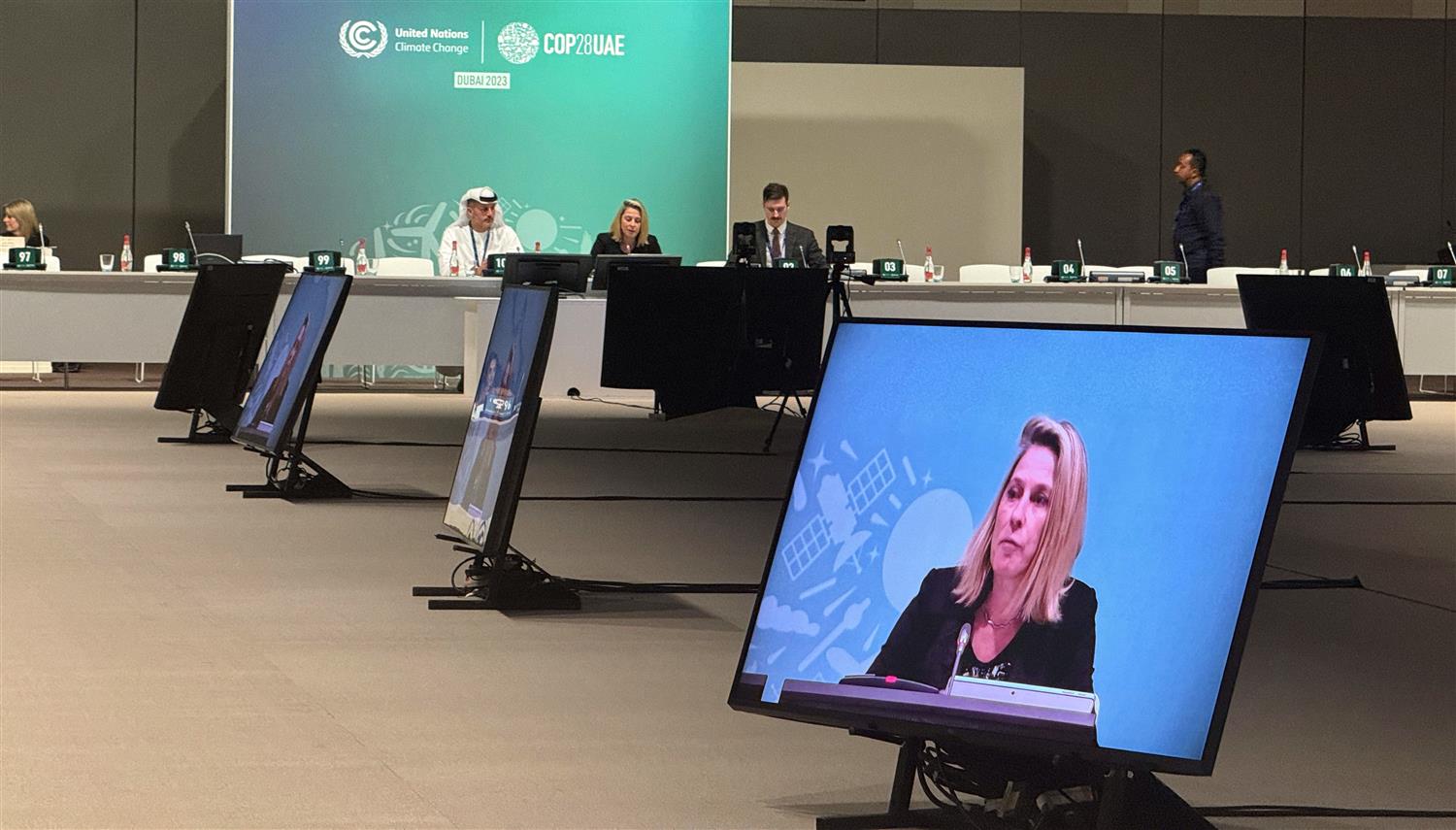COP28, Dubai, United Arab Emirates
5 December 2023
The
 Net Zero Nuclear Industry Pledge was launched today, in an event held as part of the COP28 Presidency Thematic Program, in Dubai, United Arab Emirates.
Net Zero Nuclear Industry Pledge was launched today, in an event held as part of the COP28 Presidency Thematic Program, in Dubai, United Arab Emirates.
Endorsed by 120 companies, headquartered in 25 countries, and active in over 140 nations worldwide, the Pledge commits industry to a goal of at least a tripling of nuclear capacity by 2050.
The companies endorsing the Pledge are matching the ambition and pragmatism shown by those governments which signed the Nuclear Ministerial Declaration earlier this week.
Both the Ministerial Declaration and the Net Zero Nuclear Industry Pledge commit to the goal of tripling nuclear capacity by 2050.
Dr Sama Bilbao y León, Director General, World Nuclear Association said, “Nothing less than this ambitious – but achievable – target will be enough to deliver the scale of contribution needed from nuclear energy to achieve sustainable economic development, and avert the devastating consequences of unchecked climate change.”
Since 2000, nuclear generation has supplied, on average, 2500 TWh of electricity each year. Worldwide, nuclear reactors now supply around 10% of the world’s electricity, and around one-quarter of all clean, low-carbon electricity.
But with electricity demand expected to more than double by 2050, nuclear needs to grow faster.
Through their decisions at COP28, and through their national policies, governments can create the enabling policy environment that will support a greater contribution from nuclear energy to climate change mitigation. By ensuring nuclear has access to climate finance equal to other clean energy sources, governments can enable nuclear capacity deployment at scale worldwide. But it will be the nuclear industry that will be responsible for the implementation of such policy objectives, through the construction and operation of existing and new nuclear plants, support facilities and related technologies.
Sama Bilbao y León said; “It is now time to move forward: let’s translate ambition into pragmatic policies, good intentions into affordable financing, and deadlines into on-time on-budget delivery of new nuclear energy projects.”







